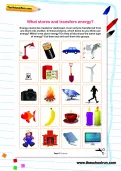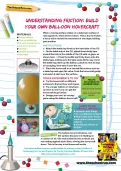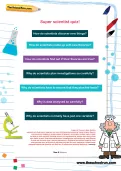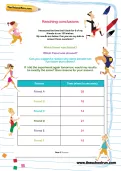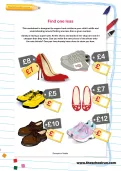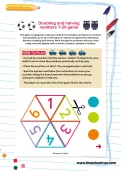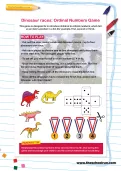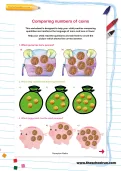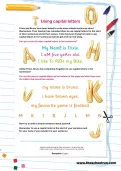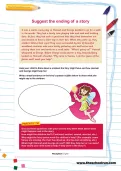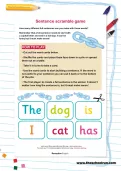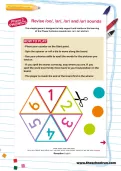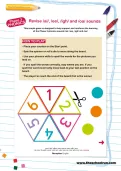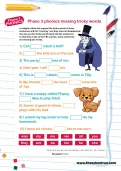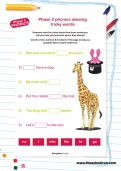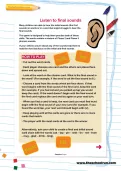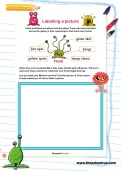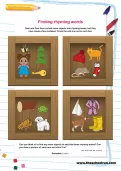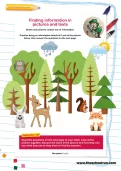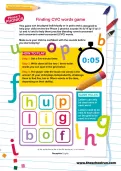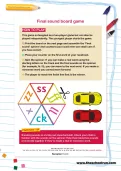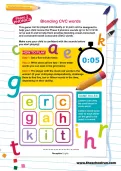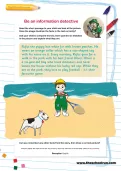This worksheet is designed to support and reinforce your Reception child’s skills and understanding around finding one less than a given number.
or
Register to add to your saved resources
Already a subscriber? to view this content.
A maths board game for Reception children, designed to help them find doubles and halves of numbers and quantities up to 20. It will help children recognise the relationship between doubling and halving.
or
Register to add to your saved resources
This Reception numbers and counting game is designed to help your child to find doubles and halves of numbers and quantities up to 10. It will also help your child to recognise the relationship between doubling and halving.
or
Register to add to your saved resources
Already a subscriber? to view this content.
A game designed to to introduce children to ordinal numbers, which tell us an item’s position in a list (for example, first, second or third).
or
Register to add to your saved resources
Already a subscriber? to view this content.
Help your child practise comparing quantities and reinforce the language of more and less or fewer with this penny-counting worksheet.
or
Register to add to your saved resources
Already a subscriber? to view this content.
Help your child recognise capital letters and practise using them correctly with this simple worksheet for Reception children.
or
Register to add to your saved resources
Help your child read a text and then imagine how it might continue. They'll be taking their first steps into creative writing and story telling!
or
Register to add to your saved resources
Already a subscriber? to view this content.
How many different full sentences can your child make with these words? Remember that a full sentence needs to start with a capital letter and end in a full stop.
or
Register to add to your saved resources
Already a subscriber? to view this content.
This simple game is designed to help support and reinforce the learning of the Phase 3 phonics sounds /oo/, /ar/, /or/ and /ur/.
or
Register to add to your saved resources
Already a subscriber? to view this content.
This simple game is designed to help support and reinforce the learning of the Phase 3 phonics sounds /ai/, /ee/, /igh/ and /oa/.
or
Register to add to your saved resources
Already a subscriber? to view this content.
Help your child practise reading and writing the tricky words they've learned in Phase 3 phonics with this Reception activity. Tricky or exception words are words in which the English spelling code works in an unusual or uncommon way.
or
Register to add to your saved resources
Already a subscriber? to view this content.
Help your child practise reading and writing Phase 2 tricky or exception words (words in which the English spelling code works in an unusual or uncommon way) with this Reception activity.
or
Register to add to your saved resources
Already a subscriber? to view this content.
Many children are able to hear the initial sounds (the first sounds) in words or in a word but might struggle to hear the final sounds. This game is designed to help them practise both of these skills and covers a mixture of Phase 2 and Phase 3 phonics sounds.
or
Register to add to your saved resources
Already a subscriber? to view this content.
Help your child learn how to label a picture correctly with a drawing and writing activity for Reception children.
or
Register to add to your saved resources
Already a subscriber? to view this content.
Help your child listen to sounds and identify rhyming words with this Reception activity sheet.
or
Register to add to your saved resources
Books and pictures contain lots of information. Practise being an information detective! Look at the picture on the worksheet, then answer the questions on the next page.
or
Register to add to your saved resources
Already a subscriber? to view this content.
Once your child is confident with the Phase 2 phonics sounds /h/ /b/ /f/ /g/ /l/ /p/ /i/ /u/ and /o/, use this game to help them practise blending vowel-consonant and consonant-vowel-consonant (CVC) words.
or
Register to add to your saved resources
Already a subscriber? to view this content.
Blending sounds is a tricky but important skill. This quick phonics game is designed to help Reception children practise blending two sounds. Then they'll need to decide if they’ve made a real or nonsense word!
or
Register to add to your saved resources
Already a subscriber? to view this content.
A quick game designed to help your child review the Phase 2 phonics sounds /g/ /c/ /k/ /r/ /t/ /h/ /e/ /a/ and /i/ and to help them practise blending vowel-consonant and consonant-vowel-consonant (CVC) words.
or
Register to add to your saved resources
Already a subscriber? to view this content.
Compare a text and a picture and spot the inconsistencies between the two, in this simple exercise to help develop children's reading comprehension skills.
or
Register to add to your saved resources
Already a subscriber? to view this content.
